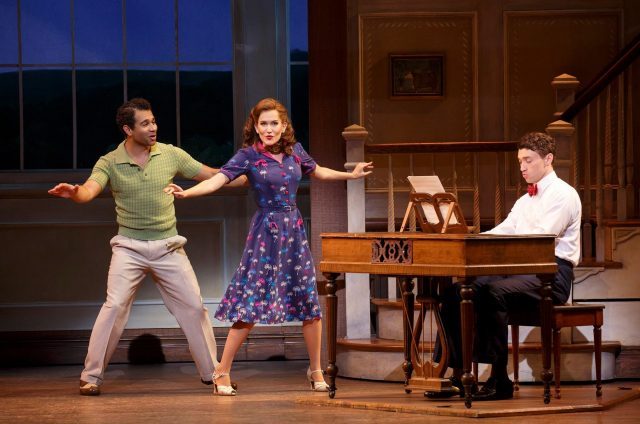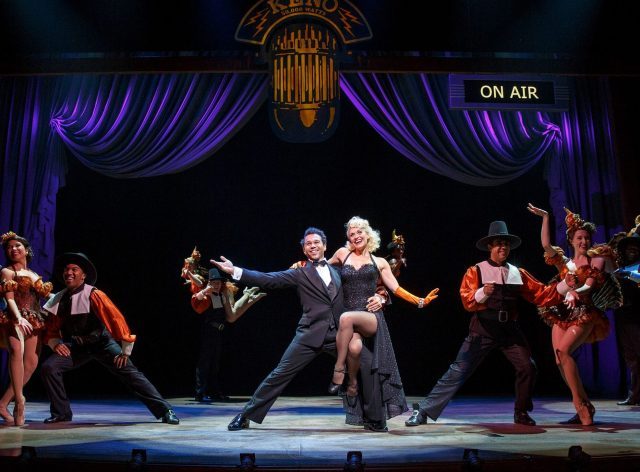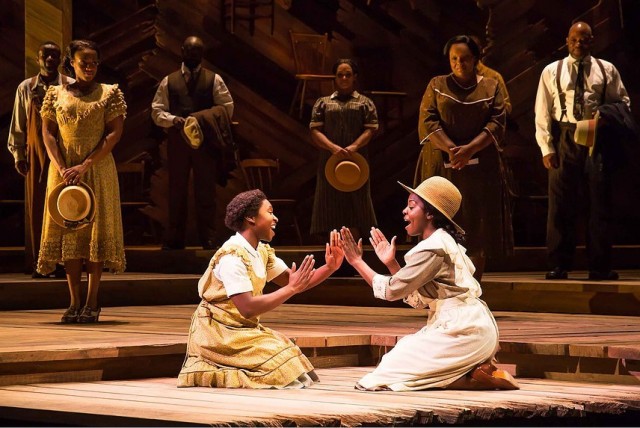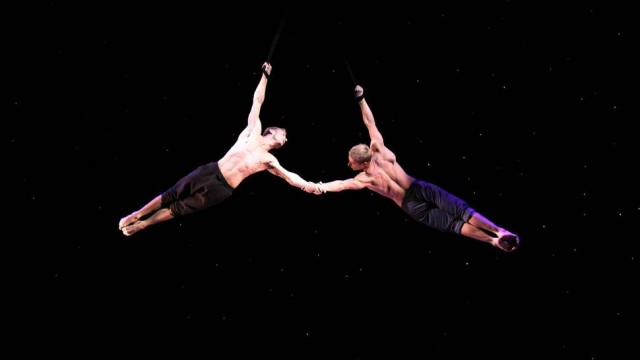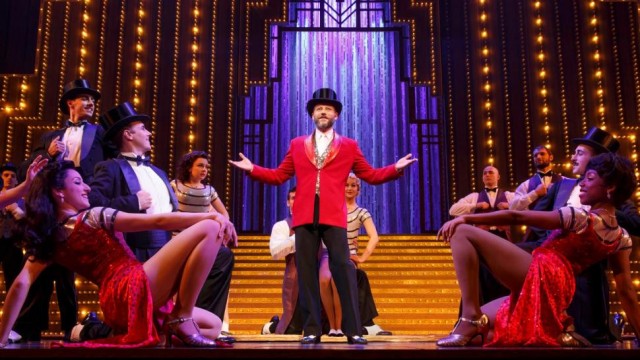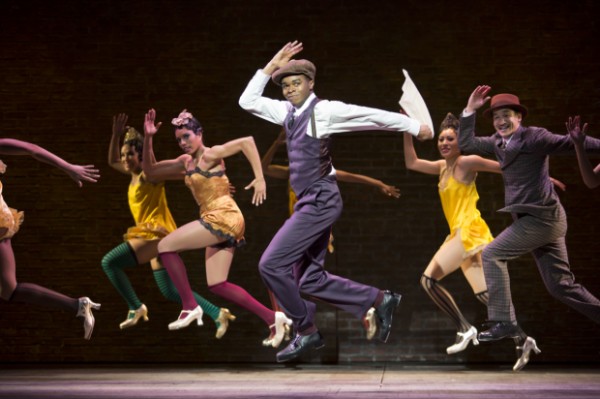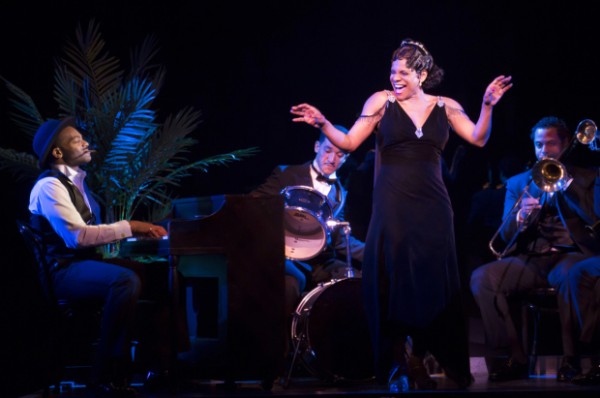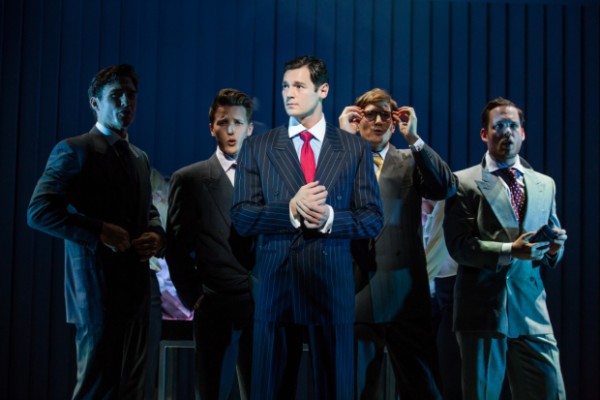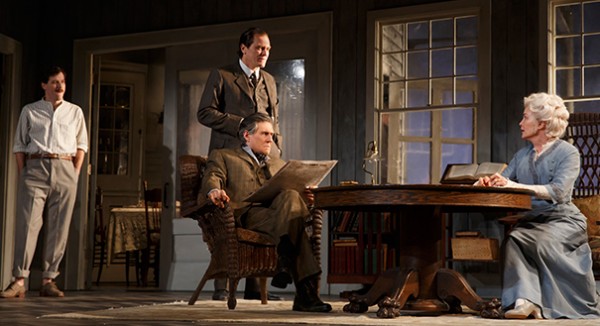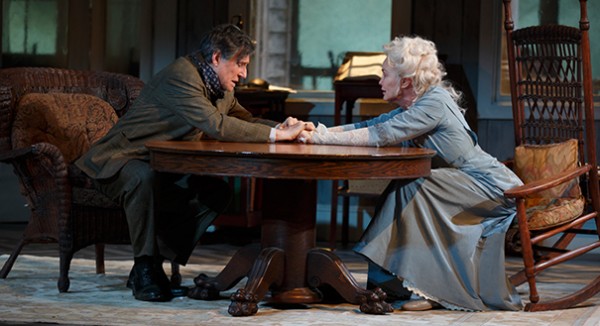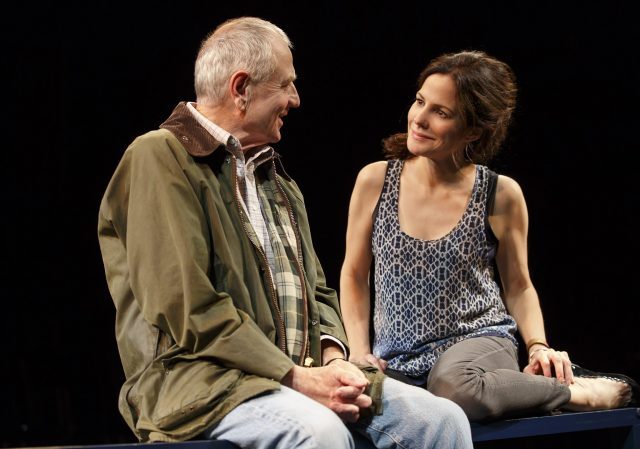
Butcher Alex Priest (Denis Arndt) and quirky Georgie Burns (Mary-Louise Parker) meet in a London tube station in HEISENBERG (photo © Joan Marcus 2016)
Manhattan Theatre Club at the Samuel J. Friedman Theatre
261 West 47th St. between Broadway & Eighth Aves.
Tuesday – Sunday through December 11, $70-$150
heisenbergbroadway.com
www.manhattantheatreclub.com
Simon Stephens’s Heisenberg, which transferred to Broadway last month shortly after his extraordinary The Curious Incident of the Dog in the Night-Time ended a two-year run at the Ethel Barrymore, might reference the quantum theory uncertainty principle that proves the impossibility of precisely measuring position and momentum at the same time, but there’s no uncertainty that the British playwright is an exceptional storyteller bursting with both position and momentum. Stephens’s Tony-winning adaptation of Mark Haddon’s children’s book was turned into a multimedia marvel by Marianne Elliott. Heisenberg explores some of the same territory, the nature of establishing connections and communication between people, but could not otherwise be more different; it’s a spare, minimal tale directed with a graceful simplicity by Mark Brokaw (The Lyons, After Miss Julie). Mary-Louise Parker and Denis Arndt are magnetic as Georgie Burns and Alex Priest, respectively, two loners who meet one afternoon in a London tube station. Georgie is a forty-two-year-old fast-talking American with a tenuous grasp on the truth, while Alex is a seventy-five-year-old Irish butcher who just wants to be left alone. As the play opens, she kisses the back of his neck, mistaking him for someone else, then starts babbling to him. “Why are you talking to me?” he asks sternly. “I’m sorry. I’m really weird. I know. You don’t need to tell me. I’ll go,” she replies. But she can’t leave; she is drawn to him, sharing intimate details of her life that might or might not be true. When she shows up at his shop five days later, tracking him down through Google, he coldly declares, “My privacy has been violated.” She responds, “‘Violated’ is a bit strong. ‘Violated’ is a bit hyperbolic.” “Nice word,” he says. “Thank you. Ha. ‘Nice word.’ Patronizing fucker,” she answers. As these two extremely particular and rather odd strangers get to know each other, they attempt to fill in the missing parts of their lives.
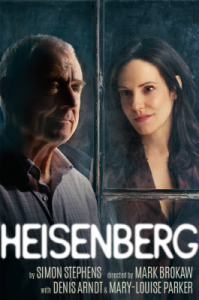
The awe-inspiring technology behind Curious Incident is completely absent in Heisenberg, a streamlined production that relies on basic, almost workshoplike elements. Mark Wendland’s (Next to Normal, The Merchant of Venice) sparse stage features two chairs and two tables that the actors occasionally move around as the scenes change; there is a riser of seats behind the stage, placing the characters in the middle of the audience. Despite the show’s title, Stephens’s script does not delve deeply into physics, although at one point Georgie explains, “If you watch something closely enough you realize you have no possible way of telling where it’s going or how fast it’s getting there. Did you know that? That’s actually the truth. That’s actually scientifically been proven as the truth. By scientists. They all got together and they completely agreed on that. If you pay attention to where it’s going or how fast it’s moving, you stop watching it properly.” Those words also apply to how one can experience theater, including this Manhattan Theatre Club production. There’s no need to pay special attention to where this charming two-actor character sketch is going, or how fast it will get there; just watch it properly, immersed in the moment and the flow, in the lightning-quick pace and dizzying spectacle of Parker’s (Proof, Weeds) splendidly quirky performance or the subtle, sly, sublimely powerful work of Oregon Shakespeare Festival veteran Arndt (The Ballad of Soapy Smith, Basic Instinct) as he almost imperceptibly builds the quietly heartbreaking figure of Alex. “You need to follow it. The melody,” Alex tells Georgie when teaching her how to listen to a Bach sonata. “Try to predict what will happen to it next. It will completely take you by surprise.” The same can be said for this beautifully constructed show.
